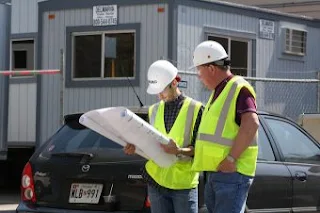PARENT LIVES OUT OF STATE
This person lives in a state different from where the custodial parent and children live. You can request the
child support agency to process:
- Interstate income-withholding if the employer of the non-paying parent is known (mandatory if the non-paying parent is one month behind).
- Or use UIFSA (Uniform Interstate Family Support Act) to establish paternity and an order or to enforce an order.
- Ask the County Prosecutor to file Criminal Charges under State Law
- Ask the U.S Attorney to file Criminal Charges under Federal Law
Read more about each method to see if your case qualifies for that type of enforcement.
INTERSTATE INCOME-WITHHOLDING
(BEST AND EASIEST ENFORCEMENT OPTION)
If you have an order for support and the non-paying parent works in another state, use this method to collect current child support and payments on back support.
This is the easiest and most successful interstate child support enforcement remedy. If you do not know where the non-paying parent works, open a locate only case at the government agency and ask them to do a State Parent Locator. Under a locate only case, the government agency provides you with the information they find about the non-paying parent. You can then decide if you want to enforce the order yourself, hire a private attorney, or use the government agency.
This action can be started by you, by private attorneys, and by the government support agency.
The non-paying parent's place of employment must be known for this process. Send the completed Income-Withholding Notice to the non-payer’s employer.
INTERSTATE CASES: CIVIL ENFORCEMENT UNDER UIFSA
Under UIFSA, (Uniform Interstate Family Support Act), a government child support enforcement agency must provide services to any parent, on request. Services include the following actions:
- Take all steps necessary to enable a tribunal (court or administrative hearing) to obtain jurisdiction over the non-paying parent.
- Request that the State where the non-custodial parent lives tribunal (court or administrative hearing) set a time, date, and place for a hearing.
- Make a reasonable effort to obtain all relevant information, including information as to the income and property of both parents.
- Send appropriate notices and correspondence received from the State where the non- custodial parent lives to the custodial parent in a timely manner.
- Notify the custodial parent if jurisdiction cannot be established and therefore a hearing can not be held for establishment or enforcement of an order.
PRIVATE ATTORNEYS
UIFSA explicitly authorizes individuals to employ private counsel to represent them in UIFSA proceedings.
GATHERING EVIDENCE ACROSS STATE LINES
Interstate cases present unique challenges for completing discovery, submitting information, and presenting testimony by the parties. UIFSA has specific provisions for transmitting and admitting evidence, as well as provisions for obtaining assistance from another State. You have a right to participate in any court hearings via teleconference.
Under UIFSA, the physical presence of the custodial parent in the state where the non-custodial parent lives is not required for establishing, enforcing, or modifying support or establishing paternity. Under UIFSA, the same rules and procedures used in civil contempt cases apply and it is used to establish paternity or support orders on an interstate case.
Under UIFSA, you are represented by the government agency in the state where the non-paying parent lives.
PATERNITY ACROSS STATE LINES
In a paternity case, the DNA sample is gathered from the mother and child in the state where they live and from the alleged father in the state where he lives. The actual testing is done by a laboratory in the State where the DNA testing was ordered.











